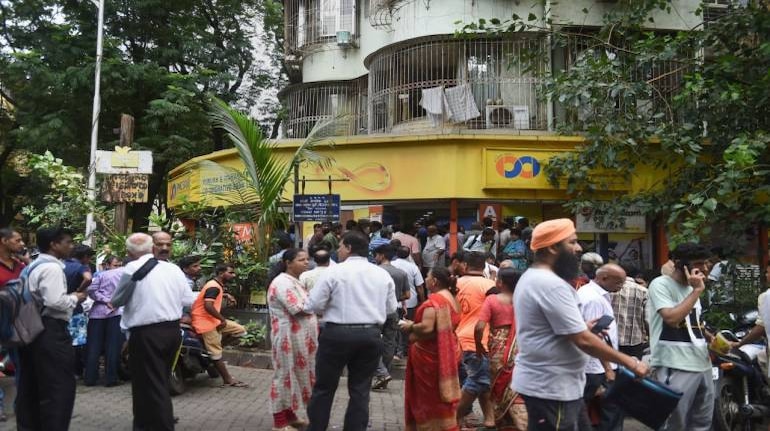Banking Central l Dear depositor, be very, very careful when you are offered extra returns
Popular Finance, Fashion Gold, PMC, Yes AT1—the lure of higher returns, loose regulations trap gullible investors. Surprisingly, investors keep returning to such firms, ignoring repeated warnings.
Last week, two cheating cases—Popular Finance fraud and Fashion Gold scam—made the headlines in Kerala. By now, the script is all too familiar. A company promoted by a few well-connected people offers unusually high returns. Looking to double their gains, people rush to these schemes with their hard-earned money. When the promoters vanish with their money or default on payments, the reality hits home but is always too late. Savings of a lifetime are wiped out in one stroke.
Of late, there has been a rash of cases where hundreds of investors have lost money due to alleged misselling, promoter fraud or poor regulation.
Popular, Fashion Gold
Popular Finance is the latest such story but is unlikely to be the last. Popular Finance was a known name in the southern state, a gold loan lender that offered handsome returns on gold deposits.
On a recent morning, investors found the firm they trusted with their savings was no longer operational— most of its branches had shut down overnight and the promoters were missing.
Police complaints followed and soon headlines were screaming about the Rs 2,000-crore deposit scandal. The family-run company, it emerged, had defrauded investors by allegedly moving their money abroad for personal gains of the promoters.
Across India, more than 200 cases have been filed by depositors. Promoters Thomas Daniel and his wife, Prabha Thomas Daniel have been arrested. Their daughters Rinu Mariam Thomas and Riya Ann Thomas were arrested from Delhi airport as they were trying to fly abroad, police said.
Another Kerala-based jeweller, Fashion Gold, with links to a local politician, is also alleged to have cheated investors. About Rs 150 crore worth of deposits are said to be at stake. The promoters have promised to return money to all investors within six months.
What went wrong?
A mix of factors is at play but it is greed that drives investors to ignore the risks in favour of higher returns. Companies like Popular Finance promised far higher returns than banks but operated without adequate approvals and operated several companies to dupe investors.
PMC and CKP banks
The problem is not confined to Kerala. A few months ago, investors in Maharashtra were in for a shock when Punjab & Maharashtra Co-operative (PMC) Bank was hit by fraud. The Reserve Bank of India (RBI) imposed restrictions on deposit withdrawals and superseded its board in September 2019.
Here, too, investors were attracted to higher returns. Co-operative banks typically offer much higher returns compared with banks.
Of PMC’s total loan book of Rs 8,383 crore, as on March 31, 2019, about 70 percent had been taken up by one company--real estate firm HDIL. The bank had Rs 11,600 crore in deposits. Former managing director of the bank Joy Thomas was arrested in October.
Investigators found that for several years the bank had facilitated lending to HDIL through fictitious accounts and in violation of single-party lending rules. To the surprise of many, even RBI officers had invested in PMC Bank’s schemes. There has been no resolution for investors so far.
On May 2, 2020, the RBI cancelled the licence of Mumbai-based CKP Co-operative Bank, saying its financial position was highly adverse and unsustainable.
The bank, as per the RBI, also did not have a revival plan or proposal for a merger with another bank. The bank had nearly 97 percent of Gross Non-Performing Assets (GNPAs), a bulk of which was loans given to small and mid-sized real estate developers.
What went wrong?
Poor regulation, mainly. Until recently, co-operative banks were largely out of the ambit of the RBI in terms of regulatory powers. Co-operative banks, run by local politicians in many cases, flouted lending rules and manipulated accounts.
Yes Bank
In March 2020, hundreds of investors lost over Rs 8,400 crore in Yes Bank’s AT1 bonds.
This was a unique case. Investors were caught by surprise when the Yes Bank bail-out plan was announced on March 13. One of the conditions for the reconstruction of the beleaguered bank was to write down the Additional Tier I Bonds, which are quasi-debt instruments.
Investors alleged that Yes Bank’s executives were misselling these instruments, pitching them as “super FDs (fixed deposits)”, offering higher returns than an FD but with the safety of a fixed deposit.
But that is not how it played out and investors have moved court. They have a long battle ahead of them.
Also read: Yes Bank saga: Rs 8,415 crore at stake, will AT1 bond holders ever get their money back?
What went wrong?
Investors of AT1 Bonds allege that the regulator was unfair to them and treated them below par equity investors. The fact, however, is that the investors weren’t careful enough to understand the pitfalls of perpetual bonds. The promise of higher returns forced them to take hasty decisions, without studying the product thoroughly.
What’s the lesson?
The promise of high returns is irresistible even for an informed investor. The same goes for smaller investors. The lure of higher return clouds their risk assessment as well. At a time when bank fixed deposits are turning unattractive, investors find high-risk schemes even more attractive.
The first line of defence in such cases is the investor’s judgment. Before falling for the promise of unusually high returns, take a pause and think. Go through the details of the schemes carefully, read the fine print. Cross-check the company’s credentials, check with certified experts and regulators to make sure that what you are about to step into isn’t a trap.


No comments:
Post a Comment